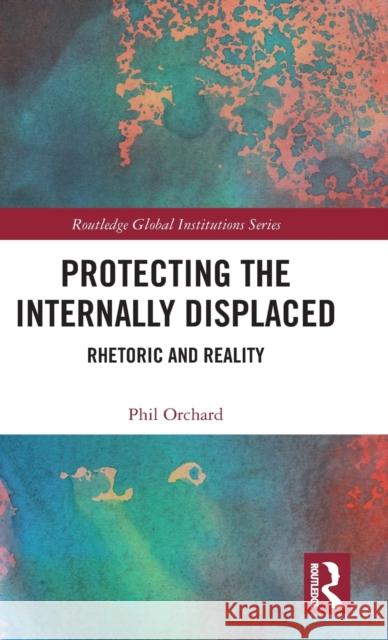Protecting the Internally Displaced: Rhetoric and Reality » książka
Protecting the Internally Displaced: Rhetoric and Reality
ISBN-13: 9781138799226 / Angielski / Twarda / 2016 / 256 str.
Protecting the Internally Displaced: Rhetoric and Reality
ISBN-13: 9781138799226 / Angielski / Twarda / 2016 / 256 str.
(netto: 674,98 VAT: 5%)
Najniższa cena z 30 dni: 654,86
ok. 22 dni roboczych.
Darmowa dostawa!
Today, there are some 28.8 million internally displaced persons (IDPs) in sixty-two states throughout the world. Refugees, outside of their own state and unable to count on its protection, are provided protection through an international refugee regime based in law and organizations such as the UNHCR. By contrast, IDPs, though displaced for similar reasons, do not have the same protections since they remain within their own state. While they continue to possess rights as citizens, the state may be unable or unwilling to protect these displaced persons, or it may even be the direct cause of their displacement. Orchard seeks to examine how the international response to the problem of IDP protection has changed over the past twenty years, and how concerns over IDPs have become fused with broader questions over humanitarian assistance, peacekeeping, and the responsibility to protect. IDPs are now a core concern of both practitioners and academics within the areas of forced migration and humanitarianism and this work explores the key questions that have been raised about how state practice has actually altered towards IDPs, and whether changes to humanitarian assistance and protection designed to include IDPs have been successful. The work then moves on to explore how the emergence of IDP protection as an international issue has challenged basic understandings around similar issues, including refugee protection, migration, humanitarianism, peacekeeping, the Responsibility to Protect, and international humanitarian and human rights law, illustrating that examining the IDP protection regime offers an important opportunity to see how a new regime interacts with a range of existing regimes around similar issues, and how new challenges are dealt with in this complicated set of structures. This work will be valuable to scholars and students of peacekeeping, international relations, R2P and regime theory, as well as to policymakers, governments, and the NGO community.











